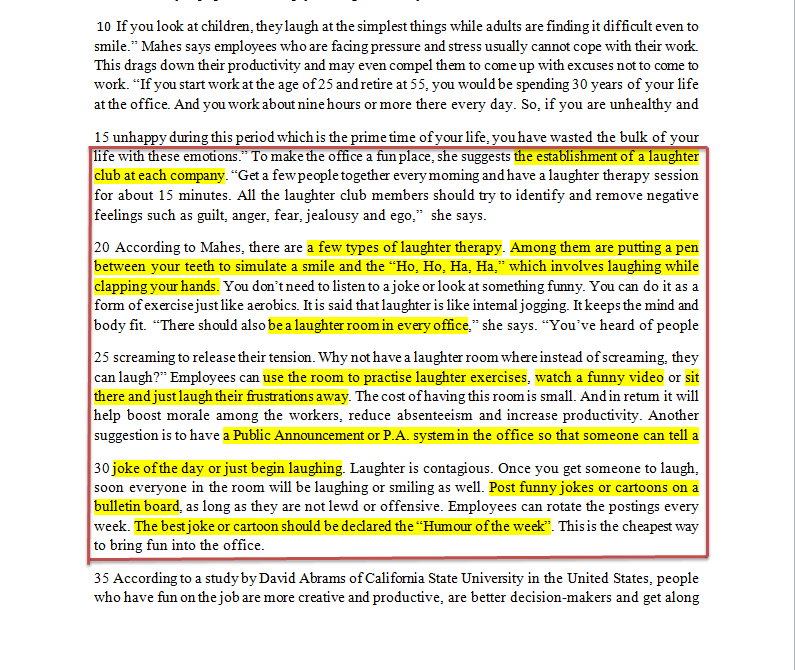MacBook Pro M4 Chip Review: Redefining Power and Efficiency – MacBook Pro M4 Chip Review Redefining Power and Efficiency dives into the remarkable advancements Apple has made with its latest technology. This innovative chip promises to enhance user experience significantly, boasting impressive speed, efficiency, and performance. From creative professionals to everyday users, the M4 chip aims to redefine what we expect from a laptop in terms of power and sustainability.
The review will explore its features, the benefits it brings to various workflows, and how it stacks up against previous models and competitors in the market. With a focus on real-world applications, we’ll help you understand why the MacBook Pro M4 is generating buzz and whether it lives up to the hype.

In today’s fast-paced world, the importance of mental health cannot be overstated. It is essential to prioritize our mental well-being alongside our physical health. With the rise of stressors in everyday life, from work pressures to personal challenges, understanding mental health has become more critical than ever. This blog post aims to explore the concept of mental health, common mental health issues, and practical tips for maintaining a healthy mind.
First, let’s define what mental health really means. Mental health encompasses our emotional, psychological, and social well-being. It affects how we think, feel, and act. It also plays a significant role in how we handle stress, relate to others, and make choices. The World Health Organization (WHO) emphasizes that mental health is more than just the absence of mental disorders; it is a state of well-being where individuals realize their potential, can cope with the normal stresses of life, work productively, and contribute to their communities.
Common Mental Health Issues
Mental health issues can manifest in various forms. Some of the most prevalent disorders include:
1. Anxiety Disorders: These include generalized anxiety disorder, panic disorder, social anxiety disorder, and more. Symptoms often involve excessive worry, restlessness, and physical symptoms such as a racing heart.
2. Depression: This mood disorder can affect how a person feels, thinks, and handles daily activities. Symptoms may include persistent sadness, loss of interest in activities, changes in appetite or sleep patterns, and difficulty concentrating.
3. Bipolar Disorder: Characterized by extreme mood swings, this condition includes emotional highs (mania or hypomania) and lows (depression). These shifts can affect sleep, energy, activity levels, judgment, behavior, and the ability to think clearly.
4. Obsessive-Compulsive Disorder (OCD): This condition involves unwanted and intrusive thoughts (obsessions) that lead to repetitive behaviors (compulsions). Those with OCD often feel compelled to perform certain rituals to alleviate the anxiety caused by their obsessions.
5. Post-Traumatic Stress Disorder (PTSD): Triggered by experiencing or witnessing a traumatic event, PTSD can manifest in flashbacks, nightmares, severe anxiety, and uncontrollable thoughts about the event.
Understanding these conditions is crucial for fostering empathy and support for those who may be experiencing them. It is important to remember that mental health issues are not a sign of weakness but rather a reflection of the complexities of human psychology.
Practical Tips for Maintaining Mental Health
Now that we have a better understanding of mental health and its issues, let’s delve into some practical and enjoyable ways to promote mental well-being.
1. Stay Active: Physical activity is a powerful antidote to stress, anxiety, and depression. Exercise releases endorphins, the body’s natural mood lifters. Find an enjoyable activity, whether it’s dancing, walking, or practicing yoga, and aim for at least 30 minutes a day.
2. Connect with Others: Building and maintaining strong relationships is essential for mental health. Make time for friends and family, engage in social activities, or even join clubs that align with your interests. Connecting with others can provide support and foster a sense of belonging.
3. Practice Mindfulness and Meditation: Taking a few minutes each day to practice mindfulness or meditation can help clear your mind and reduce stress. Focus on your breath, observe your thoughts without judgment, and cultivate gratitude for the present moment.
4. Limit Screen Time: In our digital age, it’s easy to get caught up in scrolling through social media. However, excessive screen time can lead to feelings of inadequacy and isolation. Set boundaries for yourself, such as limiting social media usage to specific times of the day.
5. Eat Well: Nutrition plays a significant role in mental health. Incorporate a balanced diet rich in fruits, vegetables, whole grains, and lean proteins. Omega-3 fatty acids, found in fish and walnuts, have been linked to lower levels of depression.
6. Get Enough Sleep: Sleep and mental health are closely connected. A lack of sleep can exacerbate anxiety and depression. Aim for 7-9 hours of quality sleep each night. Establish a relaxing bedtime routine and create a sleep-friendly environment.
7. Seek Professional Help: If you’re feeling overwhelmed, don’t hesitate to seek help from a mental health professional. Therapy can provide you with tools to cope with stress, improve relationships, and handle life’s challenges. There’s no shame in asking for help.
8. Engage in Hobbies: Pursue activities that bring you joy, whether it’s painting, gardening, writing, or playing a musical instrument. Hobbies can be a great stress reliever and provide a sense of accomplishment and fulfillment.
In conclusion, prioritizing mental health is crucial for leading a balanced and fulfilling life. By understanding mental health issues and implementing practical strategies to enhance well-being, we can create a healthier, happier society. Remember, it’s perfectly okay to seek help and take time for yourself. Your mental health matters, and by nurturing it, you’re not only benefiting yourself but also those around you.
FAQ Section: MacBook Pro M4 Chip Review: Redefining Power And Efficiency
What is the main advantage of the M4 chip?
The M4 chip offers enhanced performance and efficiency, allowing for smoother multitasking and better energy consumption.
How does the M4 chip compare to previous Apple chips?
The M4 chip provides significant improvements in speed and graphics performance compared to its predecessors.
Is the MacBook Pro M4 suitable for gaming?
Yes, the M4 chip’s improved graphics capabilities make it suitable for gaming, though it may not replace dedicated gaming laptops.

Can the M4 chip handle professional software?
Absolutely. The M4 chip is optimized for demanding applications like video editing, design, and software development.
What battery life can I expect from the M4 MacBook Pro?
Users can expect impressive battery life due to the chip’s efficiency, often lasting a full day of typical use.



